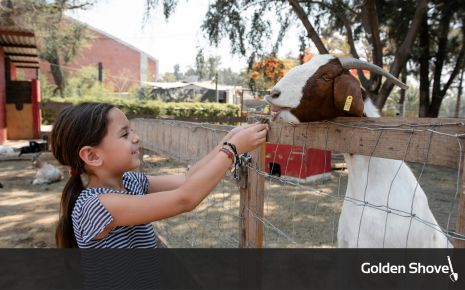Agritourism: A Promising (And Fun!) Avenue for Economic Growth

3 Jun 2024
News, Tourism
Agritourism, a rapidly growing sector, combines the idyllic allure of agriculture with tourism, offering a fresh and wholesome way to drive economic growth and build thriving communities. Below, we’ll delve into this innovative approach for regional economic development, and explore the various ways in which it can be effectively applied.
Defining Agritourism
Agritourism is short for agricultural tourism and refers to the practice of attracting visitors and tourists to working agricultural operations such as farms, ranches, vineyards, and other rural environments to provide hands-on recreational experiences centered around agriculture. It involves offering a variety of activities and experiences like farm tours, fruit and vegetable picking, wine tasting, farm stays, educational workshops on agricultural practices, and dining with locally-grown ingredients. The primary purpose of these activities is to promote an understanding and appreciation of agriculture, food production processes, local products, and the rural lifestyle among visitors, while simultaneously providing an additional income stream for the agricultural businesses hosting the experiences. By immersing tourists or visitors in the processes, lifestyle, and products of agriculture through these interactive activities, agritourism blends agriculture and tourism in a way that educates while also driving economic benefits.
Benefits of Agritourism
Agritourism offers a multitude of benefits that span across economic, social, and environmental aspects. Economically, it provides an additional income stream for farmers and rural communities, thus promoting local economies and creating job opportunities. Socially, agritourism fosters a deeper understanding and appreciation of farming and rural lifestyle among visitors, thereby bridging the gap between urban and rural societies. It offers an authentic cultural experience by allowing tourists to participate in traditional farming activities. Within communities themselves, it has the power to bring neighbors and residents together through events and activities. Environmentally, agritourism encourages transparency into agricultural practices, promoting sustainable farming practices and conservation of natural resources as it often involves organic farms, vineyards, and orchards. Agritourism is not only a viable business model or additional revenue stream for farmers but also a tool for rural development, cultural exchange, and environmental preservation.
How Economic Development Professionals Can Nurture Agritourism
Economic development professionals can use agritourism to diversify the local economy by promoting agritourism to attract tourists, and generate additional income and visibility for the community. Promotional campaigns can highlight unique agritourism aspects like experiencing farm life, sustainable practices, and fresh local food. Agritourism can also be used as a vehicle to preserve agricultural lands and traditions, as part of an overall strategy to protect local heritage and promote sustainable practices. It creates job opportunities through direct employment in activities as well as indirectly in hospitality, transportation, and other sectors. Agritourism serves as a tool for community development by strengthening ties, enhancing local pride, and improving quality of life. Economic development professionals can also use it to attract investment by showcasing the potential to investors. Additionally, it enhances the area's image as a tourist destination to attract more visitors, increase overall economic activity, and foster desirability as a potential moving location.
Ideas for Agritourism
Economic development professionals can tap into this growing trend by promoting a diverse array of agritourism activities that showcase the area's agricultural assets. There are a myriad of exciting possibilities for Agritourististic activities:
- Farm or ranch visits: This allows visitors to experience and understand the day-to-day operations of farming and livestock rearing.
- Wine tasting and vineyard tours: These activities offer an insight into the process of winemaking, from grape cultivation to the final product.
- U-pick farms: These farms allow visitors to pick their own fruits and vegetables, providing a hands-on farming experience.
- Agricultural festivals and fairs: These events celebrate local agriculture and often include activities like hayrides, corn mazes, and animal petting.
- Farm-to-table dining experiences: These involve meals prepared with locally sourced ingredients, often served on the farm where they were grown.
- Agricultural workshops and classes: These can range from cheese-making classes to workshops on sustainable farming practices.
- Farm stays or farm vacations: This involves staying overnight on a farm or ranch, often with the opportunity to participate in farm activities.
- Horseback riding tours: These tours are often offered on ranches or farms with large pastures or scenic landscapes.
- Beekeeping tours: These tours educate visitors about the importance of bees to agriculture and allow them to experience the process of honey production.
- Wildlife viewing and bird watching: Many farms and ranches are home to diverse wildlife, offering opportunities for guided or independent wildlife viewing.
- Educational institutional initiatives: Facilitate partnerships with schools and universities for educational programs and field trips.
Agritourism presents a unique and exciting opportunity for economic development professionals to promote sustainable economic growth, preserve agricultural heritage, and create enriching experiences for visitors. With creativity and collaboration between farmers, businesses, and local officials, the possibilities for agritourism are vast, providing a promising avenue for revitalizing rural areas.
More Topics






